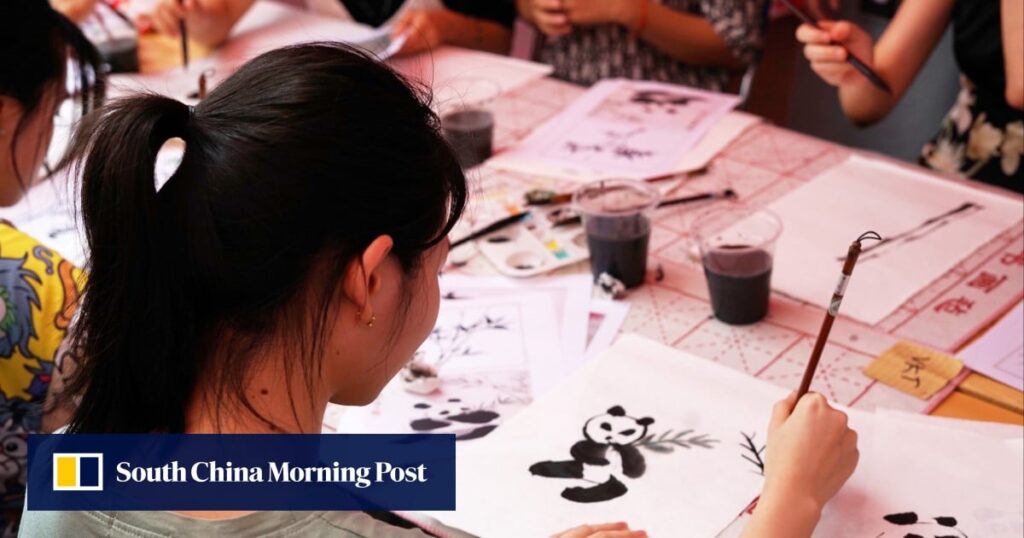
As Vietnam commemorates the 80th anniversary of its declaration of independence from colonial rule, the enduring French cultural influence is evident, yet largely unrecognized by many in the Southeast Asian nation. This week, a grand military parade will mark the independence declared by revolutionary leader Ho Chi Minh on September 2, 1945. Although this declaration was intended to conclude nearly a century of French dominance, it instead ignited a decade-long conflict that only ended with the French withdrawal in 1954.
Ba Dinh Square in central Hanoi, the historic site where Ho Chi Minh, affectionately known as Uncle Ho, proclaimed independence, is bordered by two of the city’s most well-preserved French colonial structures. These buildings now serve as the presidential palace and the foreign ministry. Despite their historical significance, a survey of six Hanoians under 30, conducted in front of the foreign ministry’s iconic yellow facade, revealed a lack of awareness of its French architectural roots.
“I came here because it has unique architecture, and it is a popular spot promoted by celebrities,” said Nguyen Thi Trang, 30, expressing surprise upon learning of its French origin. This reflects a broader trend in Vietnam, where French influences are often overshadowed by the country’s dynamic evolution and growing ties with other global powers.
Shifting Diplomatic Ties
Vietnam’s relationship with France has transitioned from colonial subjugation to a more congenial partnership. In a recent visit to Hanoi, French President Emmanuel Macron witnessed the signing of deals worth $10 billion, encompassing sectors such as aviation and satellite technology. His delight was evident when Vietnamese students addressed him in fluent French during a university event, highlighting the lingering cultural ties.
However, as Vietnam strengthens its economic and political alliances, China’s influence in the region is becoming increasingly prominent. This shift is evident in various sectors, from infrastructure development to trade partnerships, as Vietnam aligns more closely with its powerful neighbor to the north.
Historical Context and Modern Dynamics
The French colonial era left an indelible mark on Vietnam, from architecture and cuisine to legal and educational systems. Yet, the post-independence era has seen Vietnam navigate complex geopolitical landscapes, balancing its historical ties with France against the pragmatic realities of modern alliances.
According to Dr. Nguyen Phu Trong, a historian at the Vietnam Academy of Social Sciences, “Vietnam’s journey from colonial rule to independence is a testament to its resilience. While French influences are part of our heritage, the current geopolitical climate necessitates a focus on strategic partnerships, particularly with China.”
By the Numbers: Vietnam’s trade with China reached $133 billion in 2022, compared to $7 billion with France.
Implications for the Future
The growing Chinese influence in Vietnam is not without its challenges. Concerns over territorial disputes in the South China Sea and economic dependency are prevalent. Nevertheless, Vietnam’s pragmatic approach to diplomacy aims to harness the benefits of Chinese investment while safeguarding its sovereignty and cultural identity.
As Vietnam continues to commemorate its independence, the nation stands at a crossroads. The balance between preserving its rich historical legacy and embracing new opportunities will shape its future trajectory. As Dr. Trong notes, “Vietnam’s path forward will require a careful blend of honoring the past and engaging with the present.”
Looking ahead, Vietnam’s evolving identity will likely reflect a fusion of its colonial past and its aspirations for future growth. The upcoming years will be crucial in determining how Vietnam navigates its complex international relationships while maintaining its unique cultural heritage.







